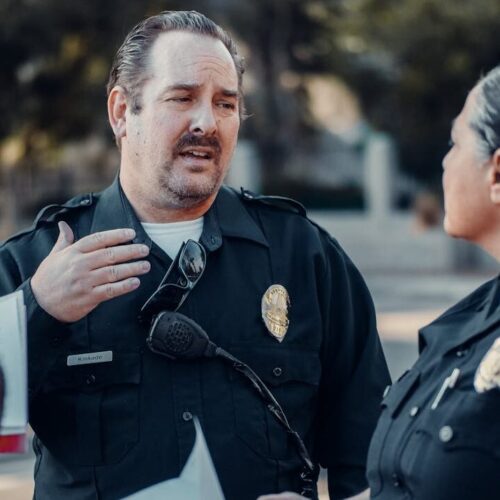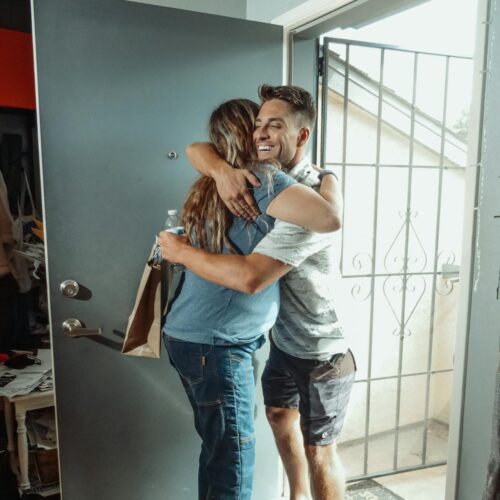Cedar Rapids, Iowa, Bridges Gap Between Police and the Community
How one city is improving responses to people in crisis with the help of their law enforcement agency and a local nonprofit
Like many law enforcement agencies across the country, the Cedar Rapids, Iowa, police department (CRPD) has faced its share of challenges when responding to mental health and substance use crisis calls. The state of Iowa closed two of its four mental health treatment hospitals in 2015, ranking it last in the nation for number of state psychiatric beds per capita and placing added stress on the state’s mental health system. With fewer options for dealing with those in crisis, coupled with a growing opioid epidemic, communities increasingly turned to law enforcement for support. And as the agency responsible for the second-largest city in Iowa, the CRPD saw a 68 percent increase in crisis calls in just 5 years, going from 958 in 2013 to 1,596 in 2018.
Recognizing the need for early intervention rather than the use of only reactionary responses, the CRPD sought out a partnership with a local service provider to help reduce the need for police-level action. Foundation 2—a community-based provider with expertise in crisis services—was itself no stranger to the challenges facing the CRPD, having experienced a 400 percent increase in mobile crisis intervention service calls over a 3-year period. As a result, they joined forces in 2017 with the aid of grant funding from the Bureau of Justice Assistance’s Justice and Mental Health Collaboration Program (JMHCP).
Together, Foundation 2 and the CRPD developed a co-responder program for the city, in which a specially trained law enforcement liaison (who is employed by Foundation 2 but works out of the police station) acts as a crisis counselor. This liaison then responds to mental health and substance use calls for service in partnership with police officers. In its first year, the program was able to provide services to over 200 people, diverting those in need away from the criminal justice system and unnecessary hospitalizations and into the behavioral health system. Still in its early stages, the partnership is already helping CRPD officers begin to refocus their efforts on people and crimes that require police attention, while still providing that initial support for individuals with behavioral health needs.
Foundation 2 Crisis Services Director Drew Martel attributes their strong partnership to the initial buy-in from the police themselves. “[We were] fortunate enough to have officers that were interested…and brought it to their chief and started the collaboration,” he said. “If you don’t have officers who are initiating this process, then you’re constantly trying to convince them of the value.”
Nicole Watters, who has been the liaison since the program’s inception, believes the success of the partnership is also partially due to a mutual respect cultivated between herself and law enforcement. “If I see an officer has already made a connection or the person desires to speak to an officer first, we have that respect, [and] I let them do what they’re doing,” she said. “Likewise, if I’m there, [the] officer is very good at letting me do what I’m doing.”
CRPD leadership helped secure support for the partnership by involving their staff in the hiring process, including having the person under consideration accompany law enforcement on ride-alongs. “It was important that the officers [choose] someone they felt comfortable with,” Sgt. Jeremy Paulsen asserted. Watters agreed. “[It] was a great way for me to get my foot in the door to meet officers, to see how they work,” she said. “And they could see ‘hey, this is beneficial’ [and] that we could provide other resources that help [those in crisis].”
The 2017 JMHCP planning grant was an “initial attempt at building something to try to change the pathway that a lot of individuals we come upon in the field who are mentally ill have to follow to get the [proper] services they need,” said Martel. Now, with the success of their first year to build on—and with additional aid from a 2019 JMHCP Implementation and Expansion grant—the CRPD and Foundation 2 are committed not only to continuing their strong collaboration, but also to addressing other pressing issues. These include covering gaps in service during evening hours and weekends, increasing data-sharing capacity between the two agencies, and developing more specialized mental health services for women and people with substance use disorders. As Sgt. Paulsen explained, “law enforcement interactions and counselor interactions with people under the influence of substances is pretty common, so we’re also looking at ways to better serve that population by providing options outside of sending them to our local jail.”
Editor’s note: The U.S. Department of Justice’s Office of Justice Programs is currently accepting applications for JMHCP and other federal grants that support partnerships between justice and mental health organizations. Learn more about these solicitations here.
The sharp rise in school shootings over the past 25 years has led school officials across the U.S.…
Read MoreA three-digit crisis line, 988, launched two years ago to supplement—not necessarily replace—911. Calling 988 simplifies access to…
Read MoreIt would hardly be controversial to expect an ambulance to arrive if someone called 911 for a physical…
Read More Taking the HEAT Out of Campus Crises: A Proactive Approach to College Safety
Taking the HEAT Out of Campus Crises: A Proactive Approach to College Safety
The sharp rise in school shootings over the past 25 years has…
Read More From 911 to 988: Salt Lake City’s Innovative Dispatch Diversion Program Gives More Crisis Options
From 911 to 988: Salt Lake City’s Innovative Dispatch Diversion Program Gives More Crisis Options
A three-digit crisis line, 988, launched two years ago to supplement—not necessarily…
Read More Matching Care to Need: 5 Facts on How to Improve Behavioral Health Crisis Response
Matching Care to Need: 5 Facts on How to Improve Behavioral Health Crisis Response
It would hardly be controversial to expect an ambulance to arrive if…
Read More











